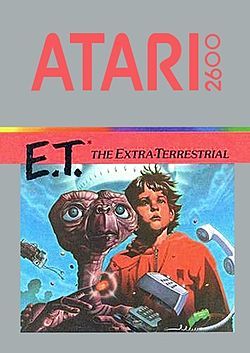This post is part of my Where Games Are Going series in which I talk about the future of one of my favorite industries: video gaming.

At the same time that digital distribution is poised to level the playing field more than ever before for independent developers, another trend has the potential to cause a crash the likes of which hasn’t been seen since 1983. And it’s all Zynga’s fault.
These days you can’t throw a rock in the gaming community without hitting someone who is talking about the brave new world of Free To Play. Everyone is taking a look at the hand-over-fist cash generated by the addiction engines pumped out by Zynga (no, I won’t call them games) and wants their piece of the pie. From the expected ranks of big publishers like EA to some of gaming’s most respected brands like Blizzard and Valve, everyone is exploring “alternative monetization” for games.
But, you might say, won’t these alternative monetization strategies just lead to more people playing games and more games being made? If games are cheaper (or even free) isn’t that better for everyone? The answer is no.
Free-to-play and in-game purchase models break the incentives associated with game development. Sure, it can be done in a tactful manner and, in some cases, may even lead to a bigger audience for a great game. I haven’t played it, but I hear that League of Legends handles free vs. paid players in a very fair way. The problem is that once your money comes not from an up-front or monthly fee but from in-game purchases, you are no longer incentivized as a developer to make the game as fun as possible. Instead, you are incentivized to make players make as many in-game purchases as possible.
We don’t have to make up a worst case scenario for how this could end up, it already exists. Games like FarmVille are, quite literally, addiction engines. They are fine-tuned to draw a player in and build an obligation to continue playing and then an obligation to continue purchasing. The problem is that there isn’t really a game underneath all the addiction; it’s just a psychologically tuned profit machine.
In-game purchases might actually be more profitable in the short term. If you can convince people that they aren’t spending as much when they actually end up spending more, you’re going to make money. The problem is that in the long term people will come to realize that they are “playing” these games but not actually having, you know, fun. If the industry focuses on this model as much as I fear it is gearing up to do, the realization that games aren’t fun anymore could have sweepingly negative impact on the industry as a whole.
The video game crash of 1982 was precipitated by a glut of mediocre-to-bad titles and little information to know which ones were good and which were bad. The gaming crash of 2015 might happen after developers have stopped making games fun in the quest to make them microtransactionally profitable. Casual and hardcore gamers alike could end up feeling jaded and alienated by an industry that treats them like marks instead of players, and if that happens gaming as a whole will suffer greatly.
Personally I loathe the idea of in-game purchases. I don’t want my experience playing a game to be marred by thinking about the price of my fun. “Gee, would I have $2.99 more fun if I bought this Vorpal Sword right now?” It’s not that I’m price-sensitive, it’s that I explicitly play games to escape the pocket-conscious decision-making of the rest of my daily life and now I’m being slapped in the face with it every five minutes.
I care deeply about the gaming industry. I believe that video games helped to shape my logical thinking and problem-solving, and I know that my interest in them precipitated my interest in computers and technology as a whole which has become a passionate and fulfilling career for me. So when I talk about this problem, it’s not because I think that there is something seriously wrong with games now. I just think that many in the industry are being fooled by this mirage of a free-to-play future, and I implore these people to think twice before signing up to willfully misalign their incentive to simply make a great game.